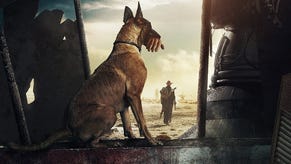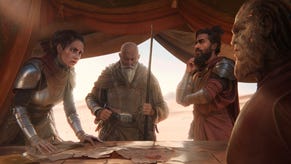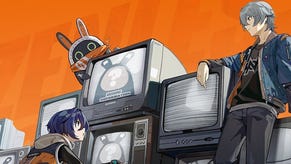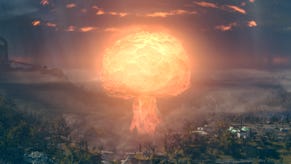MMO storytelling: "more isn't better"
Age of Conan boss argues the toss.
Age of Conan executive producer Craig Morrison has written an interesting article on the inclusion of voiced stories and cut-scenes in MMOs. The upshot: "more isn't always better".
It's why people have "reservations" about a game like Star Wars: The Old Republic, he alleged - a game in which story is "so integral". And what a time BioWare's MMO has had of late.
Morrison believes character progression has always been the "bedrock" of what is expected from an MMO. You earn experience, you level up.
Today's upswing in storytelling is great, Morrison wrote, as long as it doesn't "interfere".
"Sometimes a player just wants to progress, and they will be frustrated if you don't help make that experience smooth.
"The best cut-scene in the world won't help if the player really wants to be hitting something with a stick when you decide to show it to them.
"Why," he rhetorically asked, "was a 'skip quest text' the first GUI modification to be written for World of Warcraft, for example?"
Morrison witnessed game makers put this down player personality and "blame the culture of immediacy and short attention spans" that are "prevalent" today. Worse, the designers tried to "forcibly" alter player behaviour.
But, he countered: "This doesn't mean an MMO player can't appreciate a good story element ... [or story] be an important factor in the entertainment provided by a quest or encounter in an MMO.
"Sometimes players want, dare I say need, to be given some more dynamic and interesting experiences as well.
"It just has to be at the right moment," he wrote.
The "key" is to put story elements at non-disruptive junctures in gameplay; at "lulls" in your motivation to progress a character. Typically these are before a quest starts and then when it ends.
"I really like the sequences in Aion, or the World of Warcraft expansions where you get cut-scenes or intros to an area the first time you visit it. Those are good examples of smart use of that kind of sequence," Morrison shared.
"Those lulls are the perfect point at which to energise the experience with better cut-scenes or voice work."
Morrison asked that even if the resources were available to voice a cut-scene for every step of a quest, should you use them? "Is it really any better just because you voiced the NPC?"
"More isn't always better," he declared. "The smart use of resources can often actually create a more compelling game-play experience."
Morrison believes there are "numerous" other "more intuitive ways" of getting a story across, too.
"Text pop-ups, item descriptions, brief cut-scenes or boss quotes - a designer has a lot of options here," Morrison wrote.
"Don't make the player run back and forth between NPCs purely for a stage of the quests to update. Don't be afraid to have the quest unfold before the player and have them propel it forward."
He has always felt running back-and-forth between dawdling NPCs was "counter intuitive" to the idea of being a hero.
Morrison closed with: "The desire of the designer to entertain and lead a player on a journey will always be slightly at odds with some of the motivations that players find in MMO gameplay.
"All too often I hear designers say, 'I want the player to do...,' when what we should be saying is, 'I want the player to want to do...' That's a difference worth bearing in mind."





.png?width=291&height=164&fit=crop&quality=80&format=jpg&auto=webp)

